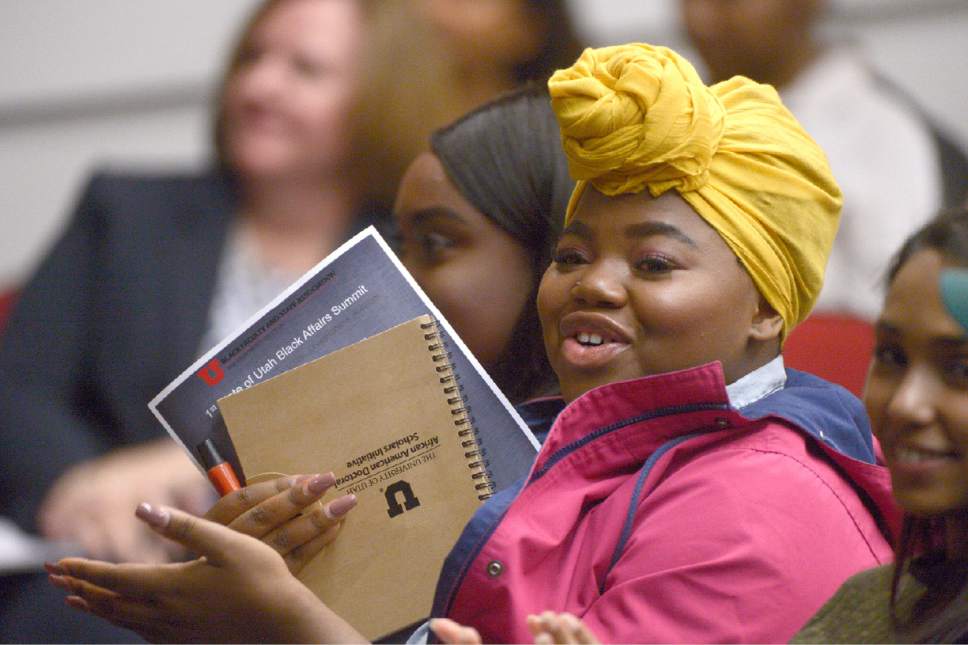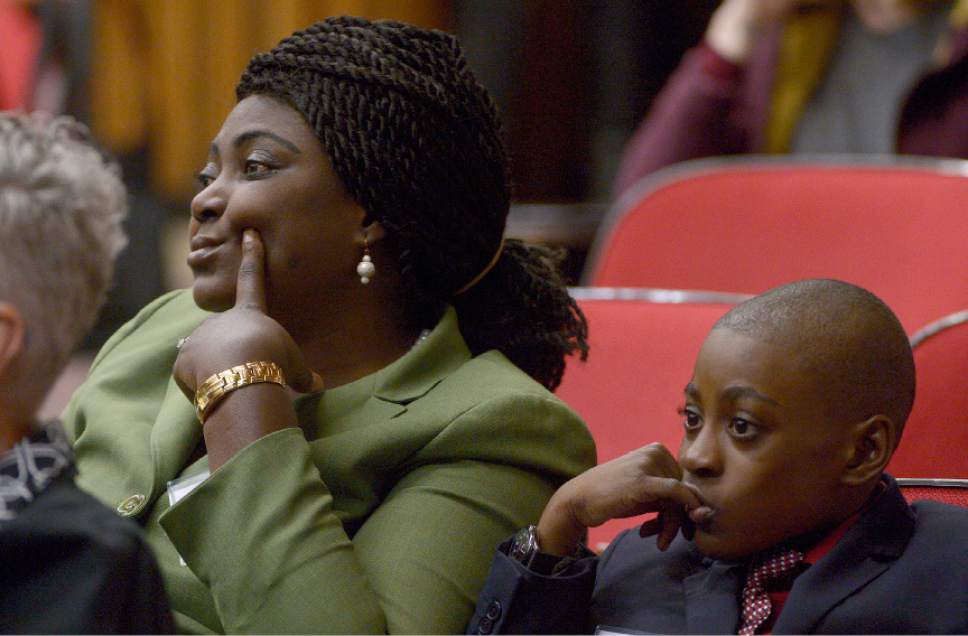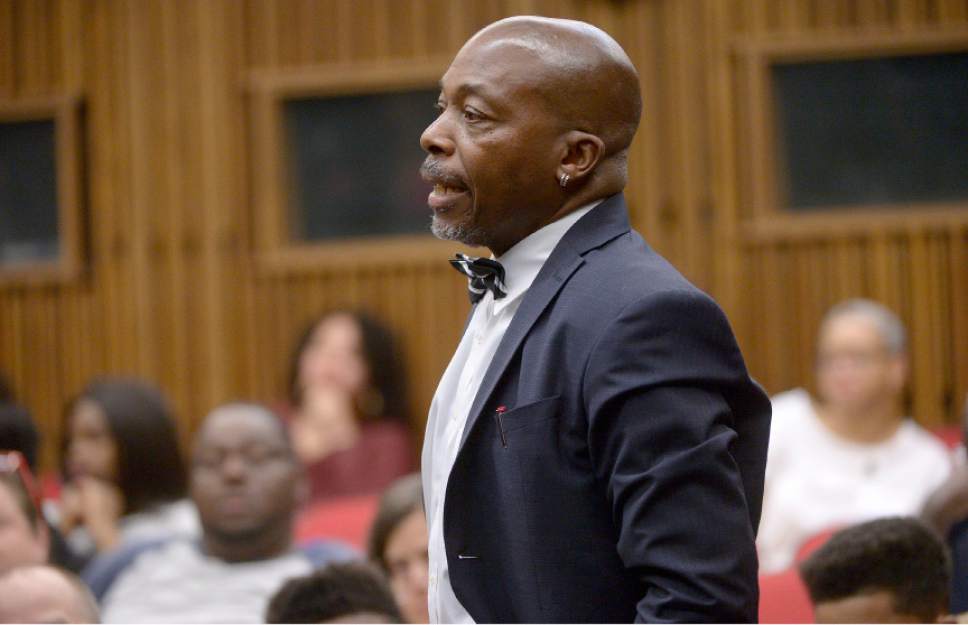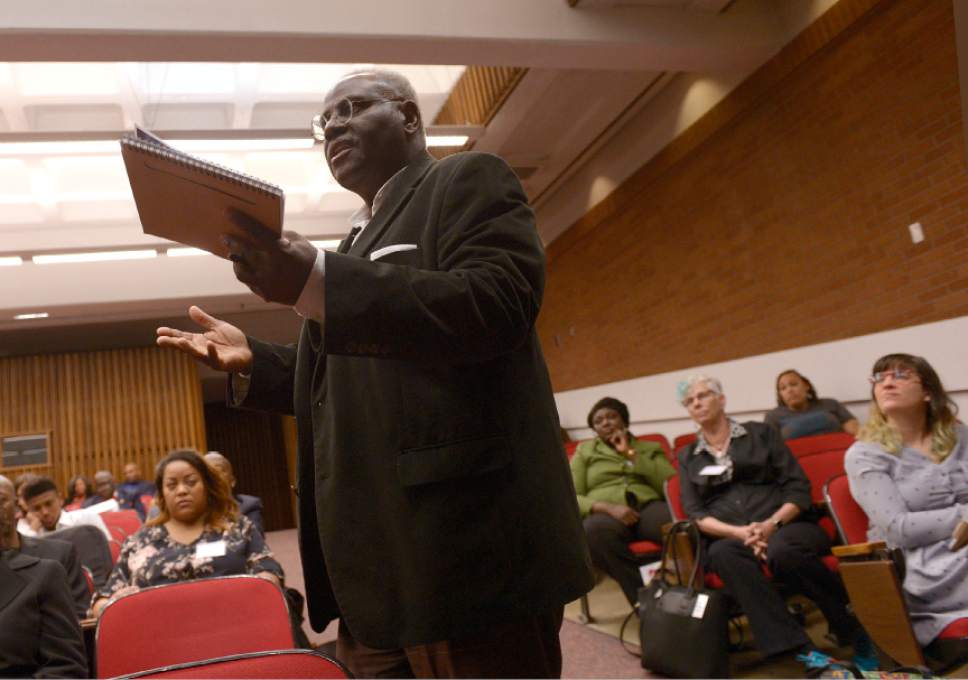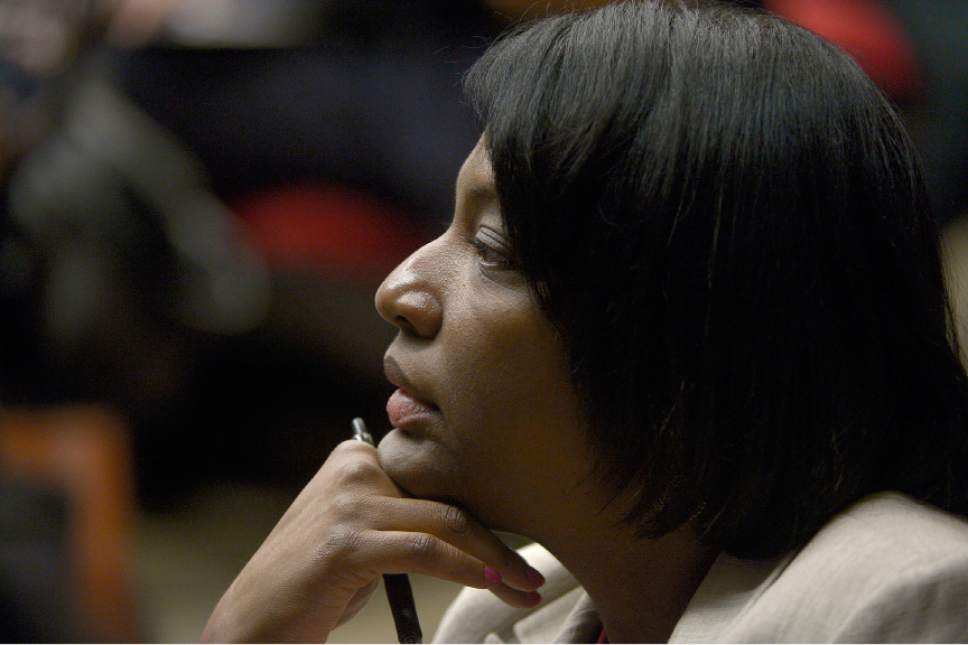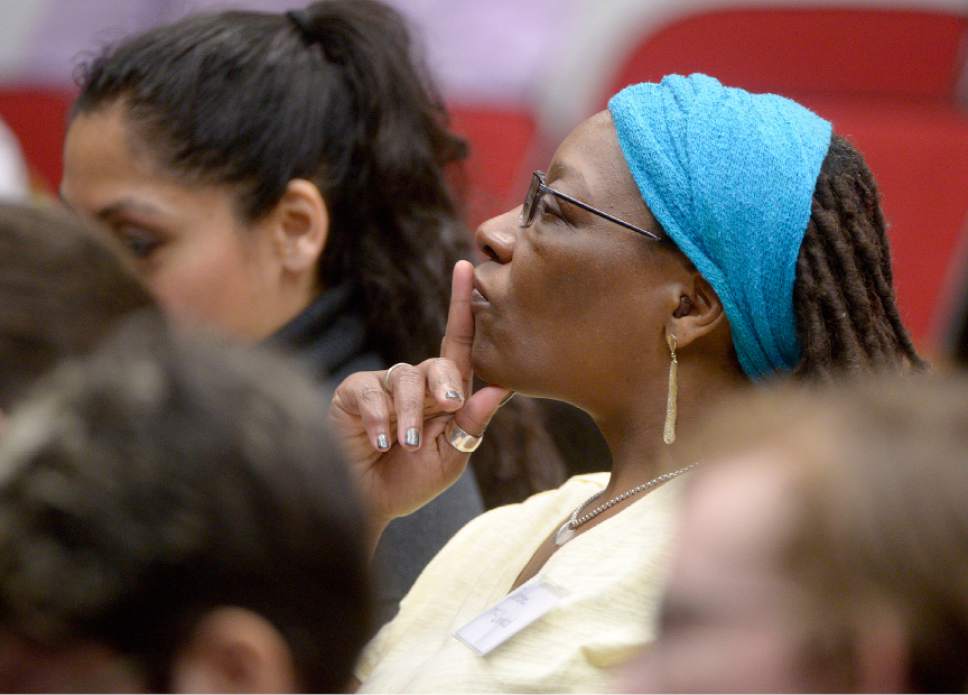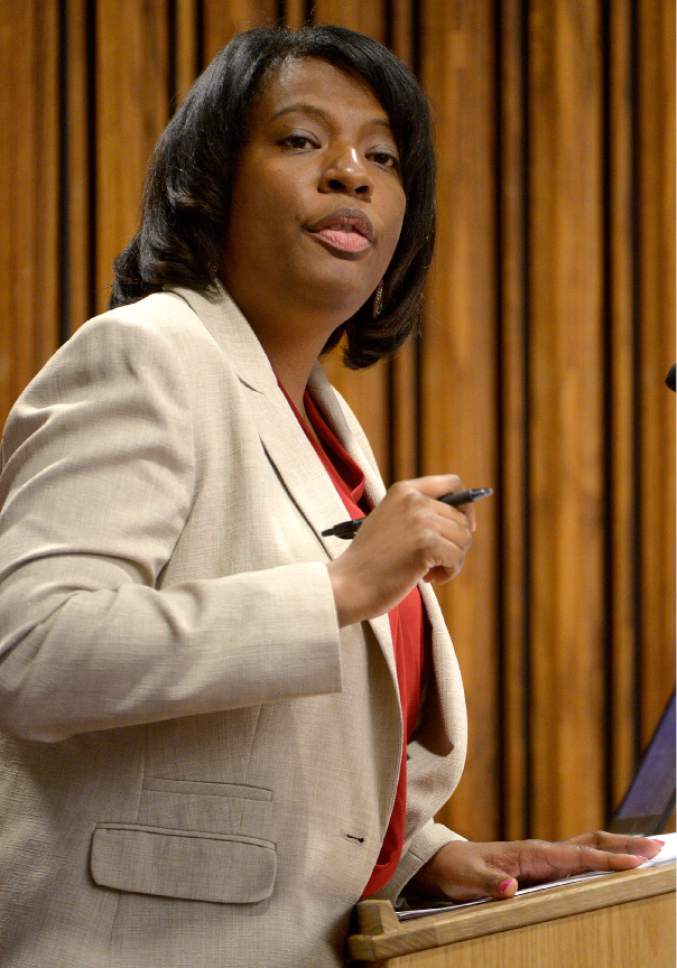This is an archived article that was published on sltrib.com in 2017, and information in the article may be outdated. It is provided only for personal research purposes and may not be reprinted.
Blacks in Utah have a right to be outraged by cases of police brutality, the high school dropout rate, and the over-representation of blacks in jails and prison.
But rather than sit on the sidelines and complain, Rep. Sandra Hollins, D-Salt Lake City — the first black woman elected to the Utah Legislature — asked them to run for political office.
"School boards do not reflect our community. City councils do not reflect our community," Hollins said Saturday during the first Utah Black Affairs Summit. "To make changes, we need to take a place at the table. We need to look at these boards and start being there."
The daylong summit, sponsored by the University of Utah's Black Faculty and Staff Association, brought together nearly 100 researchers, community activists, politicians, educators and students to discuss the state of blacks in Utah. Workshops and panels focused on ways to make positive changes in education, housing and the legal system.
Deniece Dortch, event chairwoman, joked that the summit was likely "the most black people she'd ever seen in a room in Utah." But that was a light-hearted moment for a group that often feels isolated and discriminated against in a state where just 1.3 percent of the population is black.
Dortch, a post doctoral research associate in the U.'s College Of Education, said that was the impetus for launching the summit. "So people feel like they have a community, a place to go."
Utah currently has just over 43,000 black residents, but it is a "dispersed population," said Pam Perlich, director of demographics at the U.'s Kem C. Gardner Policy Institute. About 15 percent live in Salt Lake City, 8 percent live in West Valley City, 6 percent in Ogden and the rest are spread throughout the state. Some Utah communities have no black residents.
Perlich said about 30 percent of blacks are born in Utah, 45 percent have moved from other states and 25 percent come from foreign countries, and include many immigrants and refugees.
Hollins, one of the summit's keynote speakers, pointed to a bill she sponsored — House Bill 156 or "Ban the Box" bill — as an example of the impact diversity in political office can have. The bill, which Gov. Gary Herbert signed into law this year, does away with the box on state job applications that asks whether the person has committed a crime. Applications on which the box is checked often are automatically discarded, she said, and applicants lose their chance to tell their story to a hiring manager.
Doing away with the box, Hollins said, "has been shown to get people back to work."
For those who don't want to endure a political campaign, the Rev. France Davis, pastor of Salt Lake City's historic Calvary Baptist Church, encouraged attendees to aim for one of the many policy- and decision-making boards. Davis is a member of the state Board of Regents, but his term ends this year.
While the prison system has an inordinate number of blacks, he said, there is no person of color on the state Board of Pardons; there is only one black judge — Salt Lake County Presiding Judge Shauna Graves-Robertson — in Utah's judicial system; and there are only a handful of blacks who hold cabinet-level positions at Utah colleges and universities.
"We need to have a voice in the room," he said. "I tell you, the conversation is different when we have someone in the room."


